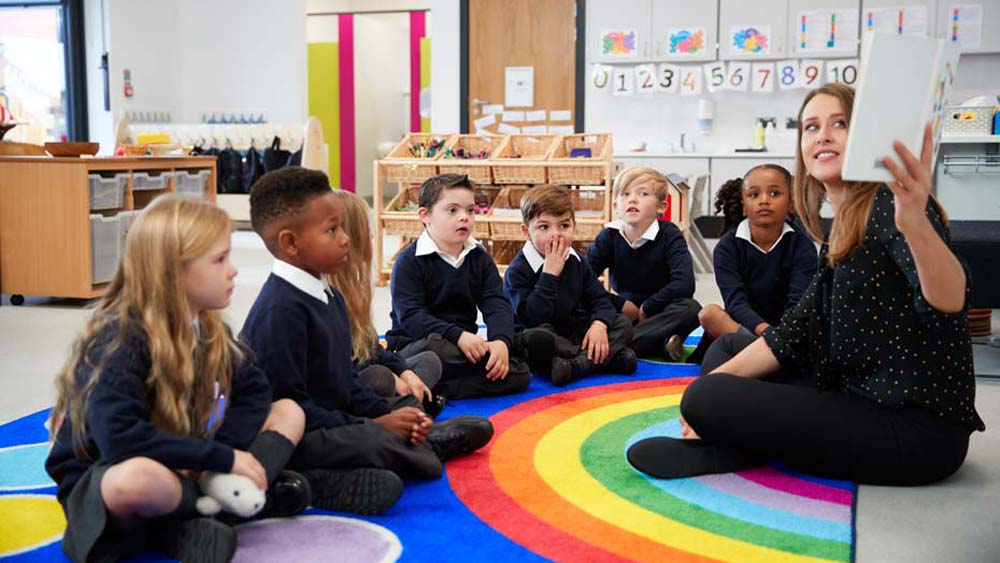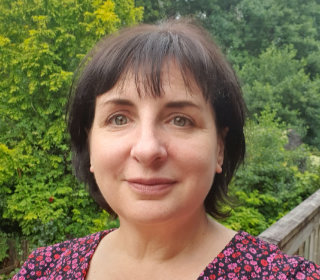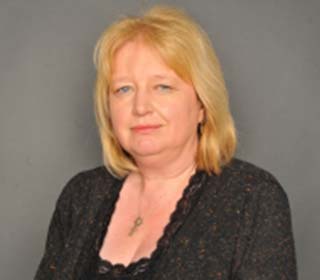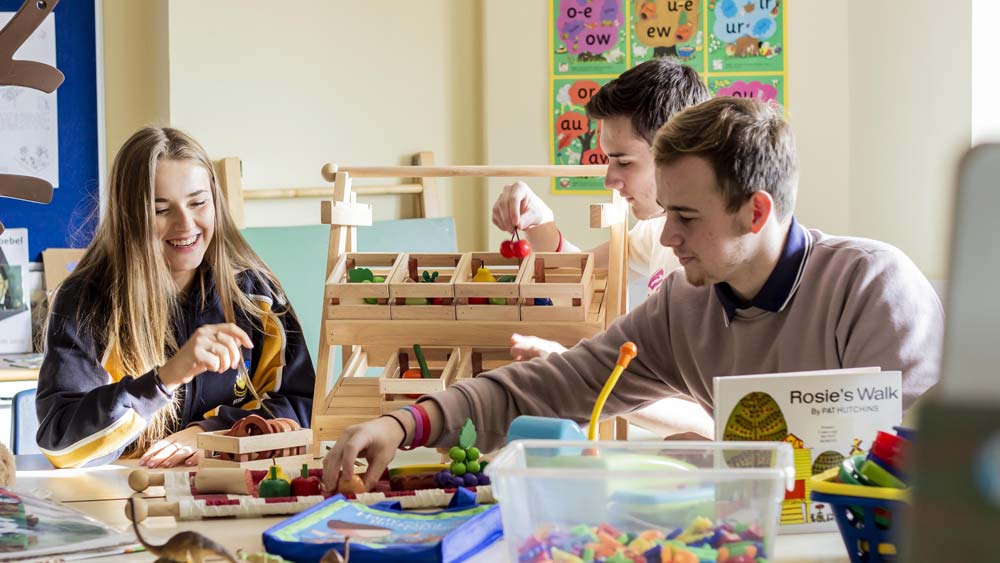FdA Teaching and Learning
Study while you work and take your career in education to the next level. This foundation degree is designed for people already volunteering or working in educational settings who want to develop their careers.


93% student satisfaction
National Student Survey 2021

Keep in touch with this course
Entry requirements
Three A-levels at grades DDE-DDD or above
Or BTEC triple grades MPP-MMP or above
Or Access 9-15 D/M with minimum 3D
Or T level P (D or E on the core)
GCSE Grade C or 4 English Language or an acceptable equivalent qualification
We are committed to safeguarding and promoting the welfare of children and students. All students are expected to share this commitment and demonstrate consistently high standards of personal and professional conduct.
We will accept 2 AS levels in lieu of one A level but must be accompanied by 2 A Levels or BTECs (General Studies is excluded).
UCAS points 64 - 72
UCAS code L590
UCAS institution code P63
Duration Two years full-time or four years part-time
Full entry requirements
- Commitment to equality and to developing anti-discriminatory approaches in practice.
- Circumstances enabling the demands of the programme to be met (including 10 hours/week paid or voluntary employment, and the support and involvement of the employer in undertaking the programme).
- All applicants must have an informal conversation (either in person or on the phone) with a course tutor.
Any questions?
Contact Tara Godber, our Applicant Support Coordinator, if you have any questions. Email applicantsupport@marjon.ac.uk and Tara will get back to you.
Course Summary
Study for a two-year foundation degree while working with children and young people in educational settings. Flexible study means you attend University just 23 days in the year. After achieving your foundation degree you’ll have the opportunity to join the final year of an Honours degree which opens doors to professional and postgraduate courses such as PGCE, School Direct or Masters courses.
You’ll be working for at least 10 hours per week on a paid or voluntary basis and will have support from a mentor in your workplace. Combining skills and understanding gained through experience with higher level academic study, the course offers personal and professional development alongside the opportunity to join a learning community of like-minded people.
The first year begins with a two-day induction and you’ll then attend university on Fridays for a full day of teaching as scheduled across the academic year. You will also need to study at home, using the internet to access course materials.
In addition to the taught part of the course, you will be involved in work-based learning modules throughout the two years; these enable you to make ‘practice’ links with the ideas explored in taught modules. You’ll attend work-based learning workshops which take place at university (typically three days per year) and produce written assignments showing how theory gives you insights into practice. Your workplace will need to support you in terms of allowing you to attend the course and by providing a mentor (usually someone with a degree or professional qualification) who will meet with you for an hour every two to three weeks - during which time you’ll explore how your learning relates to practice at work.
Why this course at Marjon?
Designed for working people
Competitive fees
Small campus and a personalised approac
Full university library resources on site and online
Support to advance your career
Earn while you learn
Modules for this course
1st Year
Communication in context
Child development
Safeguarding children and young people
Children, families and social justice
Learning and teaching
Reflection in practice
2nd Year
Growing up global
Unlocking creativity
Values in practice
Diversity in learning
Research in practice
Reviewing practice
This course is perfect if you’re curious about
Do children benefit from experiencing risk?
How can children with English as an Additional Language be an asset to learning?
How can I get my views heard in the workplace?
Do pupils with Special Educational Needs benefit from mainstream or specialised settings?
What works in bullying prevention?
Is childhood really a time of innocence?
See where our graduates are now
Kerry Grout
“My time at Marjon increased my confidence and self-belief greatly. Having the encouragement to reflect on my practice allowed me to improve the way I work, and I am confident the children have benefited from that. There is great job satisfaction in sharing in their lightbulb moments and watching their independence develop. As a higher-level teaching assistant, I lead classes and have a level of autonomy I did not have previously; I feel I am making best use of my skills and experience.”
Kerry is a Higher Level Teaching Assistant.
Sarah Gray
“As a mature student I was nervous about studying again. My time at Marjon however, has been enthralling and challenging. I was able to use practical skills and experience I had gained through employment to support my learning. The quality of the teaching and overwhelming support I received helped me to attaining a first at honours level. My time at Marjon has led to me advancing my career and led directly to my securing my current job. I am so glad I made the decision to learn at Marjon.”
Sarah is an Assistant Special Educational Needs Co-ordinator.
Melissa Allen
"Deciding to return to education felt like a massive challenge. My degree helped me to develop both academically and personally. Marjon has been an extended family providing me with support and the passion from the staff for students to achieve is outstanding. My journey has not been easy with some unforeseen personal difficulties however, I have achieved above my expectations. Marjon taught me to believe in myself as they believe in me and my dream is to become a teacher."
Melissa is studying a top up year on the BA (Hons) Primary Education at Marjon.
What might you become?
The course offers the first step of a route into teaching if you have relevant experience, but do not yet have qualifications needed to join a teacher training course.
You could also become a Special Educational Needs Coordinator or Family Support Worker, with a range of opportunities open to you including further study at Honours and Master's levels.

How you’ll be taught and assessed?
How will you be taught?
Teaching includes lectures, discussion groups, tutorials and workplace activities and mentoring. Students share ideas from a wide range of settings and we examine these in the light of research and theory.
How will you be assessed?
There are no exams involved. Assessment tasks include reports and essays, presentations, posters and designing new interventions for your own workplace. Most assignments are submitted online.

Jayne is an experienced Early Years Teacher and Pre-School Manager with additional prior experience in primary education, including the role of a Teaching Assistant and school Governor. She has Higher Education teaching experience in respect of a range of undergraduate and postgraduate courses in the School of Education. Jayne has a specific interest in Attachment, Transitions and Children's Emotional Development, as well as Leadership in Education. Jayne really enjoys working with practitioners and believes that when students engage in higher education while working this has the potential to transform their practice. She’s inspired by seeing students bringing their professional curiosity to university, and by their commitment to making a difference for children and families.
Fees and funding
Fees UK students: £6,000 per annum
This fee covers your tuition and access to course-specific equipment and facilities, as well associated services including access to the library, study skills support, IT support, student support and wellbeing services and membership of the Student Union. There may be additional costs by course.
Funding available for this course
Our Student Funding Advisors offer confidential and impartial advice about your funding options.
Learn moreYour schedule
Requires 20 days attendance per year
Course location(s):
Plymouth Marjon University
Lecturers

Jayne is an experienced Early Years Teacher and Pre-School Manager with additional insight into primary education, including school governance. She teaches Child Development and Early Years Initial Teacher Training with a focus on Attachment, Transitions and Children's Emotional Development, as well as Leadership in Early Years.

Jan was previously a primary head teacher in the South West and she now leads a teaching team at Marjon who together draw on decades of classroom experience and wide-ranging research specialisms to deliver Education courses.

Hannah is a former SureStart Children's Centre Manager, Nursery Manager and Early Years Professional, assessor and mentor. She is particularly interested in early years, play, inclusion and leadership.
Find out more about studying FdA Learning and Teaching at Marjon


Discover Uni collects data about university courses in the UK. All universities publish Discover Uni data on their online course pages enabling you to compare similar courses at different universities.



